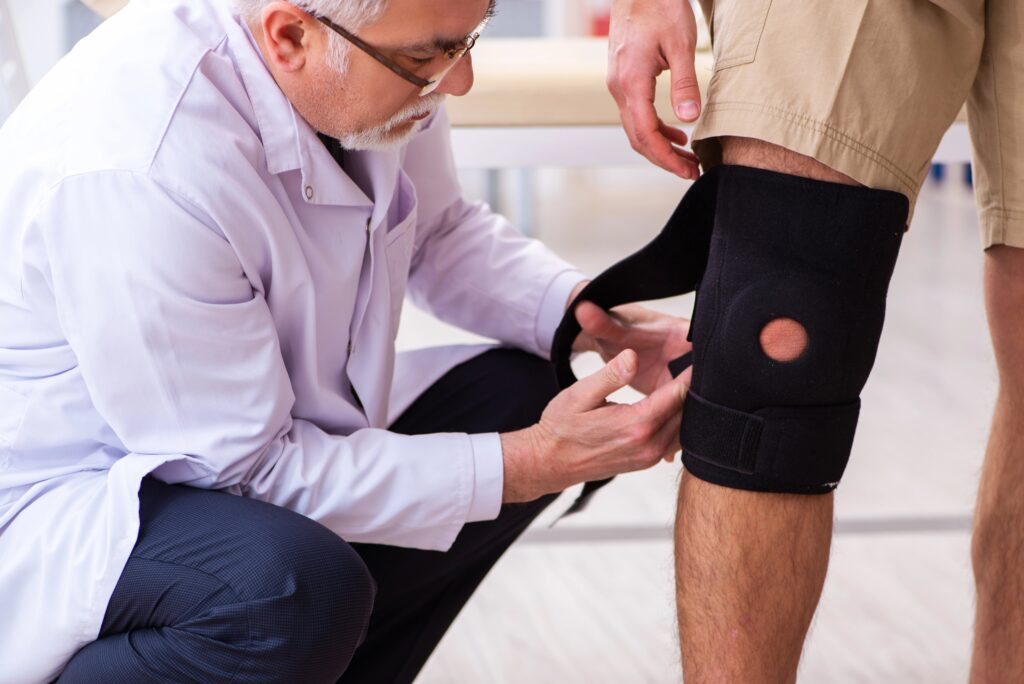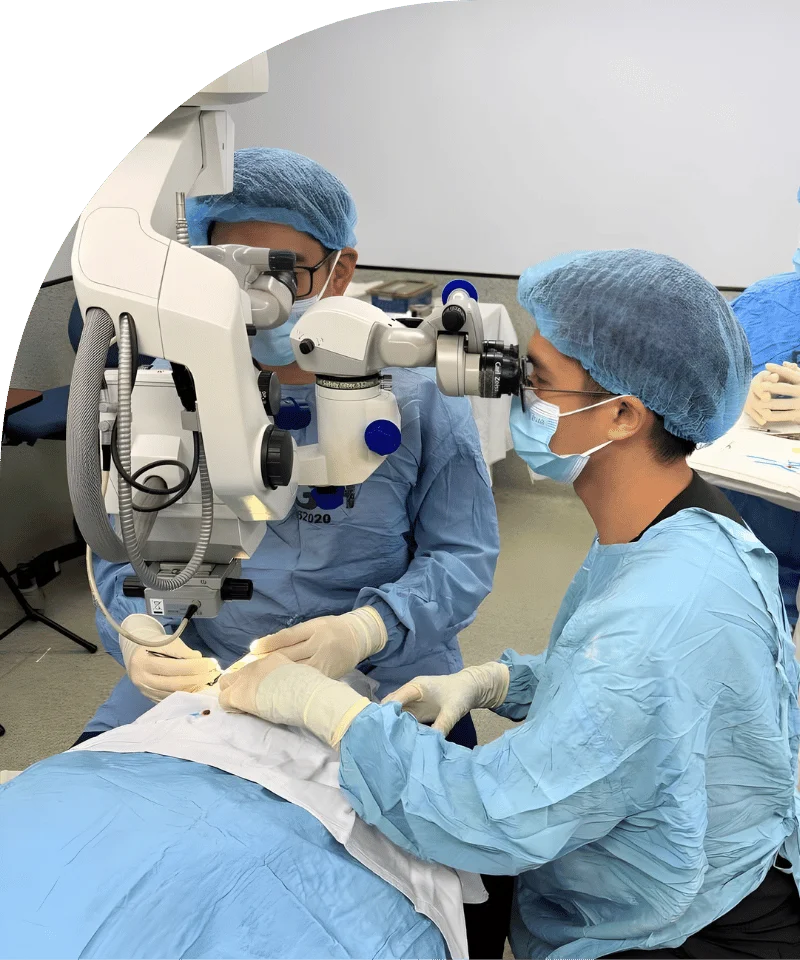Total knee replacement (TKR) is a surgical procedure designed to relieve severe pain and restore function in knees affected by arthritis, injury, or degenerative joint conditions. During this procedure, damaged bone and cartilage are replaced with artificial implants, allowing patients to regain mobility and improve quality of life. Individuals suffering from persistent knee pain, swelling, stiffness, or difficulty walking are often candidates for this surgery. Modern TKR techniques have evolved significantly, offering minimally invasive options that reduce recovery time and post-operative discomfort. Recovery typically involves a combination of physical therapy, lifestyle adjustments, and careful monitoring to ensure optimal healing. Understanding the purpose, benefits, and expected outcomes of TKR helps patients make informed decisions about their treatment options. For those facing long waiting periods or high costs in their home countries, exploring options abroad can provide both medical and financial advantages.
Reasons People Choose Surgery Abroad
Medical tourism for knee replacement has gained popularity in recent years due to several compelling reasons. One of the primary factors is cost savings, as total knee replacement abroad can be significantly more affordable compared to U.S. procedures, often without compromising quality. Many patients are also drawn to countries with highly specialized surgeons and state-of-the-art medical facilities. Shorter waiting times for surgery abroad allow patients to receive timely treatment without months of delay. Additionally, some travelers view surgery abroad as an opportunity to combine medical care with travel experiences, choosing destinations that offer comfort and convenience during recovery. Personalized care, including one-on-one consultations and attentive hospital staff, is often a highlight of international medical centers. For patients seeking both quality and efficiency, the combination of affordability, expert care, and shorter scheduling makes traveling abroad an attractive option.
Choosing the Right Destination
Selecting the right destination for a total knee replacement abroad requires careful research and consideration. Popular countries for orthopedic surgery often include India, Thailand, Mexico, and Turkey, each offering advanced healthcare infrastructure and internationally accredited hospitals. Accreditation, such as Joint Commission International (JCI) certification, ensures that hospitals adhere to high standards of patient safety and surgical care. Surgeon experience is another critical factor, as selecting an orthopedic specialist with extensive TKR experience directly impacts outcomes. Language barriers and ease of communication should also be evaluated to ensure clear understanding of pre- and post-surgery instructions. Patients must consider travel logistics, local regulations, and the availability of post-operative rehabilitation services. Comparing destinations in terms of quality, cost, and convenience empowers patients to choose the most suitable option for their needs.
Planning Your Surgery Abroad
Proper planning is essential to ensure a smooth experience when undergoing knee replacement surgery abroad. Start by researching hospitals and surgeons online, reviewing credentials, patient reviews, and procedural success rates. Many hospitals offer virtual consultations, allowing patients to discuss medical history, current health conditions, and surgical options remotely. It’s important to verify visa requirements and travel documents well in advance to avoid delays. Scheduling pre-operative evaluations, including lab tests and imaging, may be coordinated before arrival or during an initial visit to the hospital. Organizing accommodation and transport near the medical facility can reduce stress and make recovery more comfortable. Preparing a comprehensive travel and medical plan ensures that patients are fully informed and ready for both the surgery and the recovery period abroad.
Cost Considerations
Cost is often the deciding factor for patients exploring total knee replacement abroad. On average, TKR abroad can cost 50% to 70% less than equivalent procedures in the United States. The overall price typically includes hospital stay, surgeon fees, anesthesia, medications, and sometimes post-operative physical therapy. Some hospitals also offer all-inclusive packages covering airport transfers, accommodation, and rehabilitation services. While insurance coverage may vary, many U.S.-based providers offer partial reimbursement for procedures performed overseas, making it essential to confirm details in advance. Financing options, including medical loans or payment plans, can further ease the financial burden. Understanding the full cost breakdown helps patients avoid hidden fees and plan their budgets effectively, ensuring a smooth and affordable experience abroad.
Preparing for Surgery
Pre-operative preparation plays a critical role in achieving successful outcomes for TKR abroad. Health assessments, including blood tests, X-rays, and cardiovascular evaluations, ensure that patients are fit for surgery. Doctors may recommend specific exercises to strengthen muscles surrounding the knee, improving recovery speed and surgical results. Patients should review current medications with their surgeon to avoid complications and make any necessary adjustments. Lifestyle modifications, such as maintaining a healthy diet, quitting smoking, and managing weight, can significantly impact healing and reduce post-operative risks. Psychological preparation, including setting realistic expectations and understanding recovery timelines, contributes to patient confidence. Thorough preparation ensures that patients arrive ready for surgery, minimizing potential complications and maximizing the benefits of the procedure.
During the Surgery and Hospital Stay
The TKR procedure itself usually lasts between one and two hours and is performed under general or spinal anesthesia. Patients can expect a hospital stay ranging from three to seven days, depending on individual recovery rates and hospital protocols. Pain management is a priority during this period, with medications administered to control discomfort and prevent complications. Nursing staff provide continuous monitoring and support, assisting with mobility, hygiene, and early physical therapy sessions. Hospitals catering to international patients often offer translators, private rooms, and personalized care plans to make the stay more comfortable. Understanding what to expect during hospitalization reduces anxiety and helps patients focus on recovery. Post-surgery monitoring ensures that any complications are addressed promptly, improving overall safety and outcomes.
Post-Operative Care and Rehabilitation
Rehabilitation is a vital component of total knee replacement recovery abroad. Physical therapy typically begins shortly after surgery, focusing on restoring knee movement, strengthening muscles, and preventing stiffness. Most patients continue therapy for several weeks or months, following structured exercise plans provided by their surgeon or physiotherapist. Pain management remains important during this period, often combining medications, ice therapy, and supportive devices. Patients are advised to follow dietary guidelines, maintain proper hydration, and monitor for signs of infection or unusual swelling. For those returning home, telehealth consultations with the original hospital or local physical therapists can ensure continuity of care. A disciplined rehabilitation routine not only accelerates recovery but also maximizes the longevity of the knee implant.
Potential Risks and How to Minimize Them
Like any major surgery, total knee replacement abroad carries risks, including infection, blood clots, implant issues, or nerve damage. Traveling internationally introduces additional considerations, such as managing post-operative care far from home and navigating unfamiliar healthcare systems. Choosing accredited hospitals and experienced surgeons can significantly reduce these risks. Patients should follow all pre- and post-operative instructions carefully and report any complications promptly. Vaccinations, hygiene, and travel insurance are also recommended to safeguard health during international travel. Understanding potential risks and actively mitigating them ensures a safer experience and better surgical outcomes.
Frequently Asked Questions (FAQ)
Is total knee replacement abroad safe?
Yes, when performed in accredited hospitals by experienced orthopedic surgeons, TKR abroad is generally safe. Thorough research and careful planning are essential to minimize risks.
How much can I save by having surgery abroad?
Patients often save 50% to 70% compared to U.S. prices, depending on the destination and hospital chosen.
How long should I plan to stay in the country for recovery?
Hospital stays typically last 3–7 days, with additional time recommended for follow-up appointments and initial rehabilitation, usually totaling 2–3 weeks.
Will my insurance cover a surgery done abroad?
Coverage varies by provider. Some insurers offer partial reimbursement, while others require pre-authorization, so it is crucial to confirm details in advance.
What should I pack and prepare before traveling for surgery?
Pack medical records, current medications, comfortable clothing, travel documents, and any prescribed equipment for post-surgery mobility. Pre-surgery preparations also include health assessments and any lifestyle adjustments recommended by your doctor.









